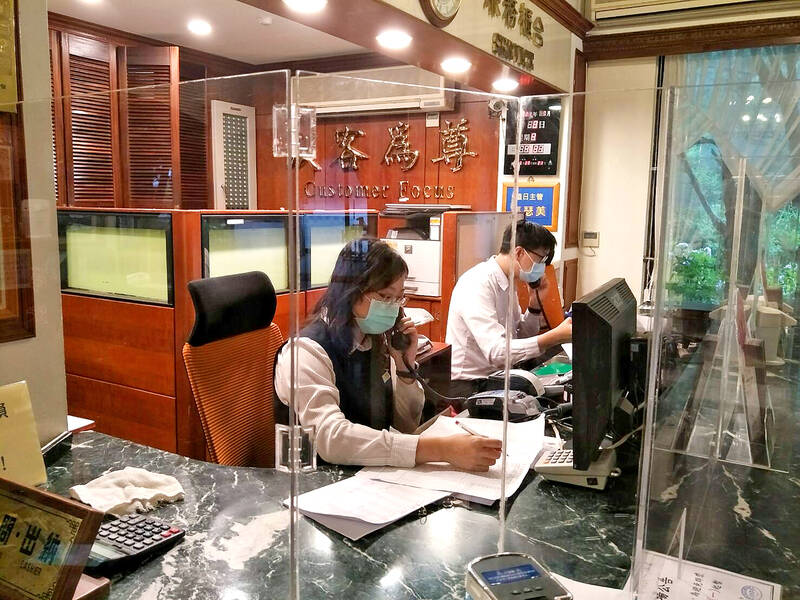Taiwan is to loosen work restrictions for foreign and “overseas compatriot” students before the end of August to allow them to work in mid-level skilled positions in the travel and hospitality industry after graduation, the Ministry of Labor said yesterday.
Foreign and overseas compatriot students have become an important source of labor, as National Development Council data show that Taiwan is facing an estimated shortage of 400,000 workers by 2030, Workforce Development Agency Chief Secretary Chen Shih-chang (陳世昌) said in a report.
The students have been allowed to do an internship or work part-time, and have a white-collar job after graduating if they meet Taiwan’s scoring criteria, he said.

Photo courtesy of Wuling Farm
Under the amended policy, they would also be able to take mid-level skilled jobs, he said.
Foreign and overseas compatriot students with an associate degree or higher could apply for jobs such as room attendants, reservation agents, receptionists, sanitation workers and waiters in the hospitality industry, Chen said.
Jobs in the tourism industry open to foreign and overseas compatriot students would limited to managerial positions, ministry official Chuang Kuo-liang (莊國良) said.
Existing policy for mid-level skilled workers prescribes that employers and officials must decide on a minimum wage and professional requirements, he said.
This has not yet been determined, but a minimum monthly wage of NT$33,000 could be considered for mid-level skilled laborers, as is the standard in the manufacturing industry, Chuang said.
Meanwhile, the ministry would cancel the limit on the number of students allowed to work in Taiwan under the scoring criteria system, Chen said.
The Overseas Community Affairs Council and students have reported that the system discouraged employers from hiring foreign and overseas compatriot students, as they were worried they would be unable to work in Taiwan because of the quota, even though it was increased each year before it was reached, he said.
In line with National Development Council’s policy objective of employing 200,000 foreign and overseas compatriot students in Taiwan by 2030, there are plans to change legislation to allow them to apply for work permits, Chen said.

TRAFFIC SAFETY RULES: A positive result in a drug test would result in a two-year license suspension for the driver and vehicle, and a fine of up to NT$180,000 The Ministry of Transportation and Communications is to authorize police to conduct roadside saliva tests by the end of the year to deter people from driving while under the influence of narcotics, it said yesterday. The ministry last month unveiled a draft of amended regulations governing traffic safety rules and penalties, which included provisions empowering police to conduct mandatory saliva tests on drivers. While currently rules authorize police to use oral fluid testing kits for signs of drug use, they do not establish penalties for noncompliance or operating procedures for officers to follow, the ministry said. The proposed changes to the regulations require

Taipei, New Taipei City, Keelung and Taoyuan would issue a decision at 8pm on whether to cancel work and school tomorrow due to forecasted heavy rain, Keelung Mayor Hsieh Kuo-liang (謝國樑) said today. Hsieh told reporters that absent some pressing reason, the four northern cities would announce the decision jointly at 8pm. Keelung is expected to receive between 300mm and 490mm of rain in the period from 2pm today through 2pm tomorrow, Central Weather Administration data showed. Keelung City Government regulations stipulate that school and work can be canceled if rain totals in mountainous or low-elevation areas are forecast to exceed 350mm in

The Executive Yuan yesterday announced that registration for a one-time universal NT$10,000 cash handout to help people in Taiwan survive US tariffs and inflation would start on Nov. 5, with payouts available as early as Nov. 12. Who is eligible for the handout? Registered Taiwanese nationals are eligible, including those born in Taiwan before April 30 next year with a birth certificate. Non-registered nationals with residence permits, foreign permanent residents and foreign spouses of Taiwanese citizens with residence permits also qualify for the handouts. For people who meet the eligibility requirements, but passed away between yesterday and April 30 next year, surviving family members

1.4nm WAFERS: While TSMC is gearing up to expand its overseas production, it would also continue to invest in Taiwan, company chairman and CEO C.C. Wei said Taiwan Semiconductor Manufacturing Co (TSMC) has applied for permission to construct a new plant in the Central Taiwan Science Park (中部科學園區), which it would use for the production of new high-speed wafers, the National Science and Technology Council said yesterday. The council, which supervises three major science parks in Taiwan, confirmed that the Central Taiwan Science Park Bureau had received an application on Friday from TSMC, the world’s largest contract chipmaker, to commence work on the new A14 fab. A14 technology, a 1.4 nanometer (nm) process, is designed to drive artificial intelligence transformation by enabling faster computing and greater power